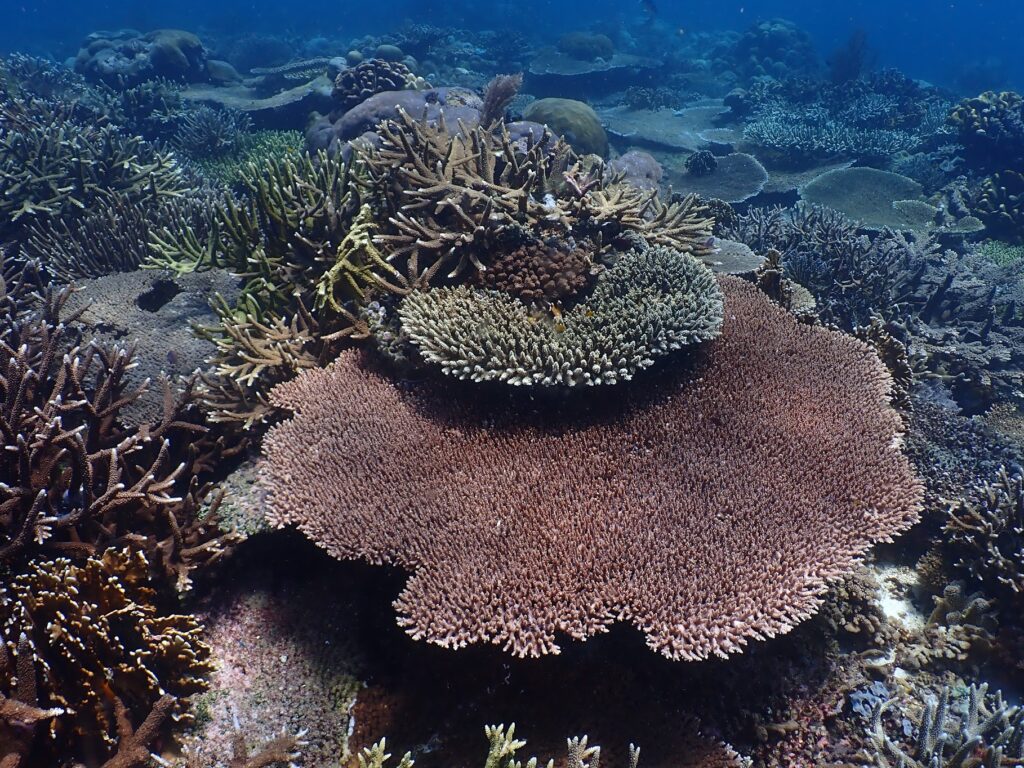Conservation and Restoration of Coral Reefs
Coral reefs are incredibly important ecosystems that provide a wide range of ecological, economic, and social benefits. They are often referred to as the “rainforests of the sea” due to their high biodiversity and complex interactions.
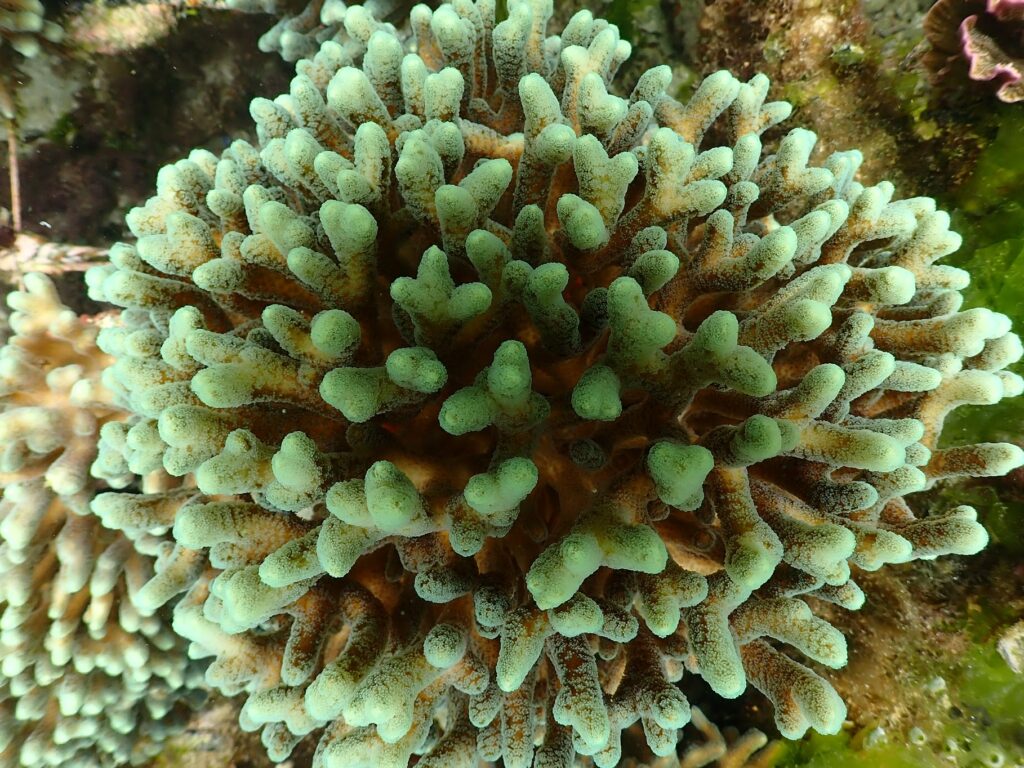
The future of coral reefs is currently a cause for concern due to various environmental challenges.
Factors such as ocean warming, ocean acidification, pollution, overfishing, and coral bleaching pose significant threats to coral reefs worldwide. Without significant efforts to mitigate these threats, the future of coral reefs could be at risk.
Efforts to protect and restore coral reefs include marine protected areas, sustainable fishing practices, and initiatives to reduce carbon emissions. Additionally, advancements in coral restoration techniques, such as coral gardening and selective breeding, offer hope for aiding reef recovery.
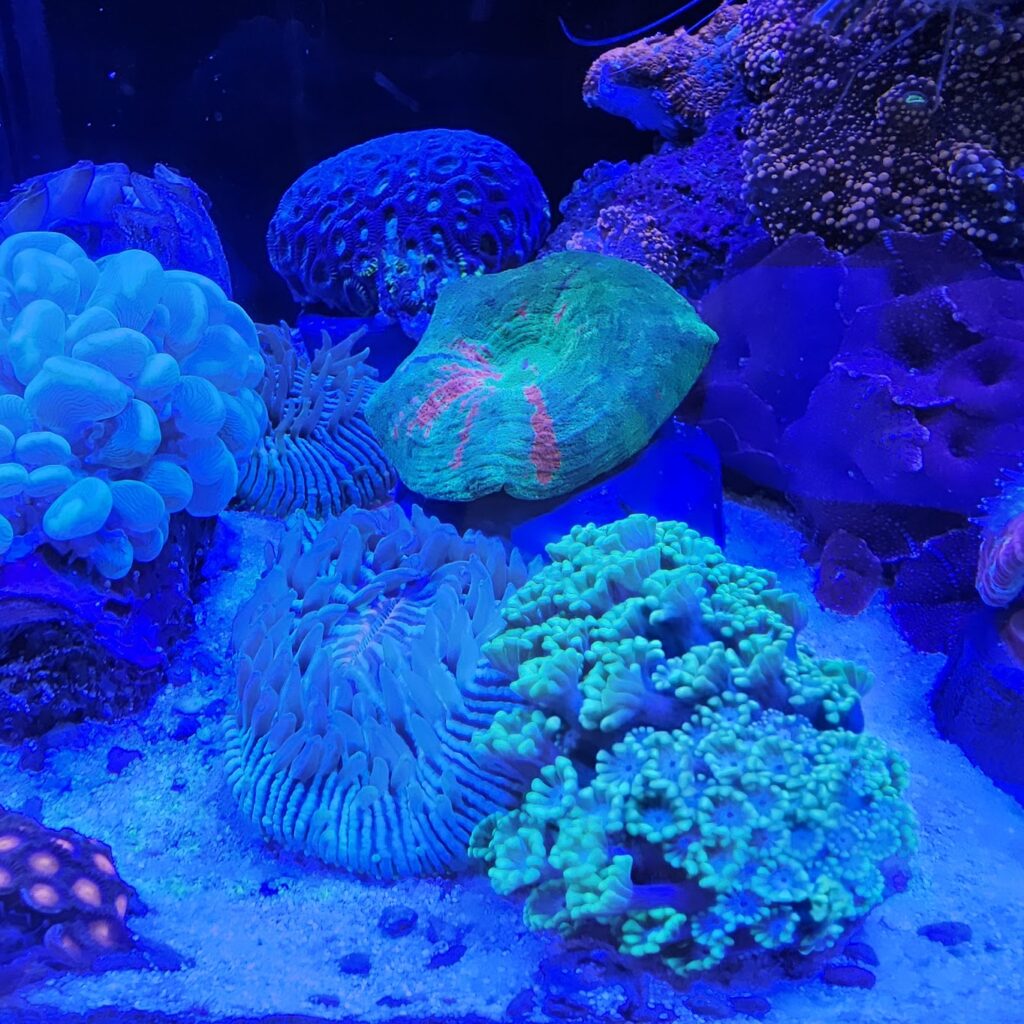
Here are some key reasons why coral reefs are important:
Biodiversity Hotspots: Coral reefs are among the most biologically diverse ecosystems, supporting numerous marine species by providing breeding, feeding, and sheltering grounds.
Fisheries and Food Security: Coral reefs support fisheries crucial for the livelihoods and food security of millions, especially in coastal communities relying on reef fish for protein and income.
Coastal Protection: Coral reefs protect coastlines from erosion and storm damage by reducing wave energy and acting as buffers against storm surges.
Tourism and Recreation: Coral reefs attract tourists for activities like snorkeling and diving, generating significant economic benefits and promoting conservation.
Carbon Cycling and Climate Regulation: Coral reefs help sequester carbon dioxide, mitigating climate change and contributing to global carbon cycles.
Medicinal and Biotechnological Potential: Coral reefs are sources of potential pharmaceuticals and biotechnological products, offering promising medical and technological advancements.
Cultural and Spiritual Value: Many communities value coral reefs for their cultural and spiritual significance, playing central roles in traditional practices and heritage.
Education and Research: Coral reefs are vital for scientific research and education, enhancing understanding of marine biology and informing conservation strategies.
Biodiversity and Ecosystem Services: Coral reefs provide essential ecosystem services like nutrient cycling and habitat creation, supporting global biodiversity and ocean health.
Global Environmental Health: Coral reefs maintain ecological balance and the well-being of the planet, highlighting the importance of their conservation.
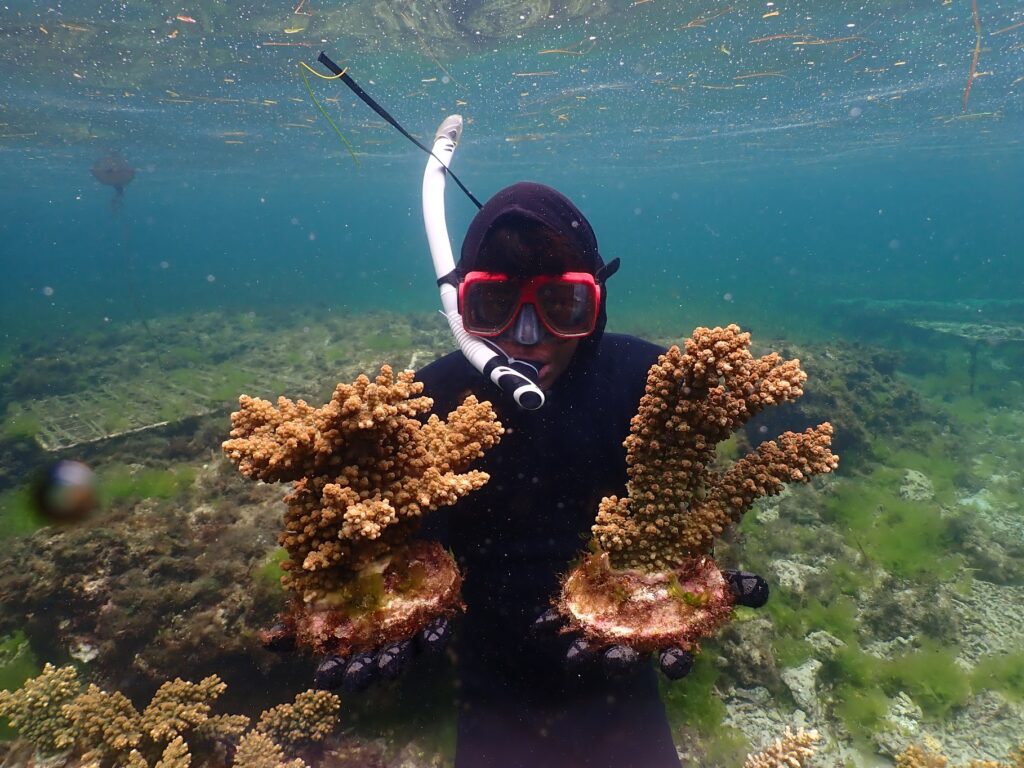
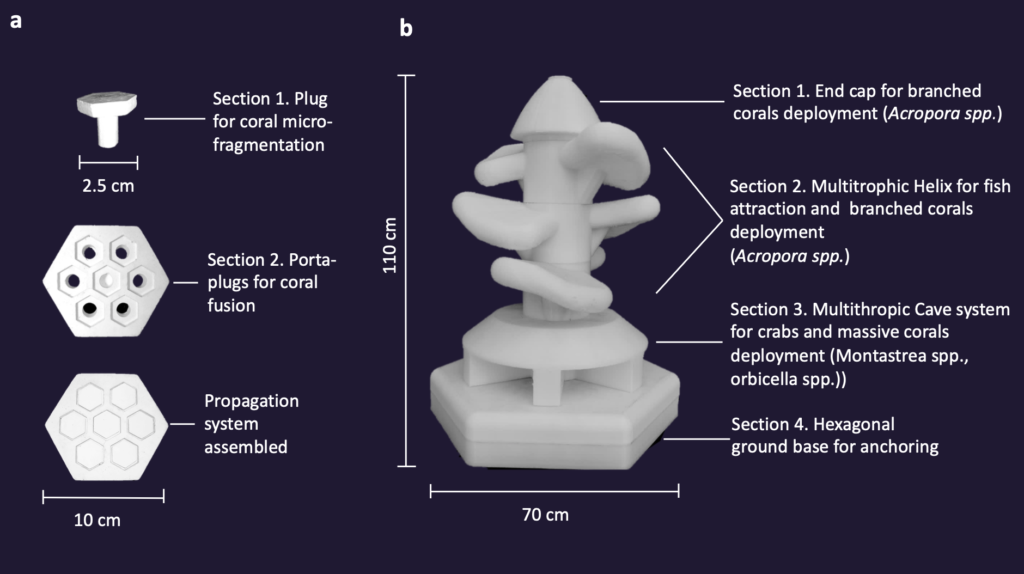
Net-Zero AragoReef and IMTARS.
RAC has developed Net-Zero AragoReef, a sustainable material made from calcium carbonate, used for coral aquaculture and promoting marine microorganism colonization. AragoReef is used to build Net-Zero IMTARS, modular systems that support diverse marine life and enhance coastal protection, conservation, and restoration. These systems are also used for tourism, education, and research. RAC is currently deploying IMTARS in “El Meco” and collaborating with researchers to validate AragoReef’s effectiveness as a marine bio-substrate in the Mexican Pacific and Caribbean.
Coral micro-fragmentation on Net-Zero AragoReef
Coral micro-fragmentation is a cutting-edge coral restoration technique that involves breaking larger coral colonies into smaller fragments, or “micro-fragments,” which are then grown in controlled environments before being outplanted onto degraded reefs. The method with Net-Zero AragoReef aims to accelerate coral growth and enhance reef recovery by exploiting the natural regenerative abilities of corals.
RAC is participating in the projects:
Developed hexagonal plugs and portaplugs of AragoReef for coral micro-fragmentation (Diploria spp., Pseudodiploria spp.,Orbicella spp., Acropora palmata, and A. cervicornis)
Developed AragoReef structures to reintroduction the massive corals affected by the WSS (Diploria spp., Pseudodiploria spp., y Orbicella spp.)
Besides, preliminary trials demonstrated that Net-Zero AragoReef is useful for the settlement of coral larvae obtained by sexual reproduction. Currently, RAC is exploring efficient techniques for the collection of sexual gametes and the production of coral larvae in captivity with Net-Zero AragoReef.
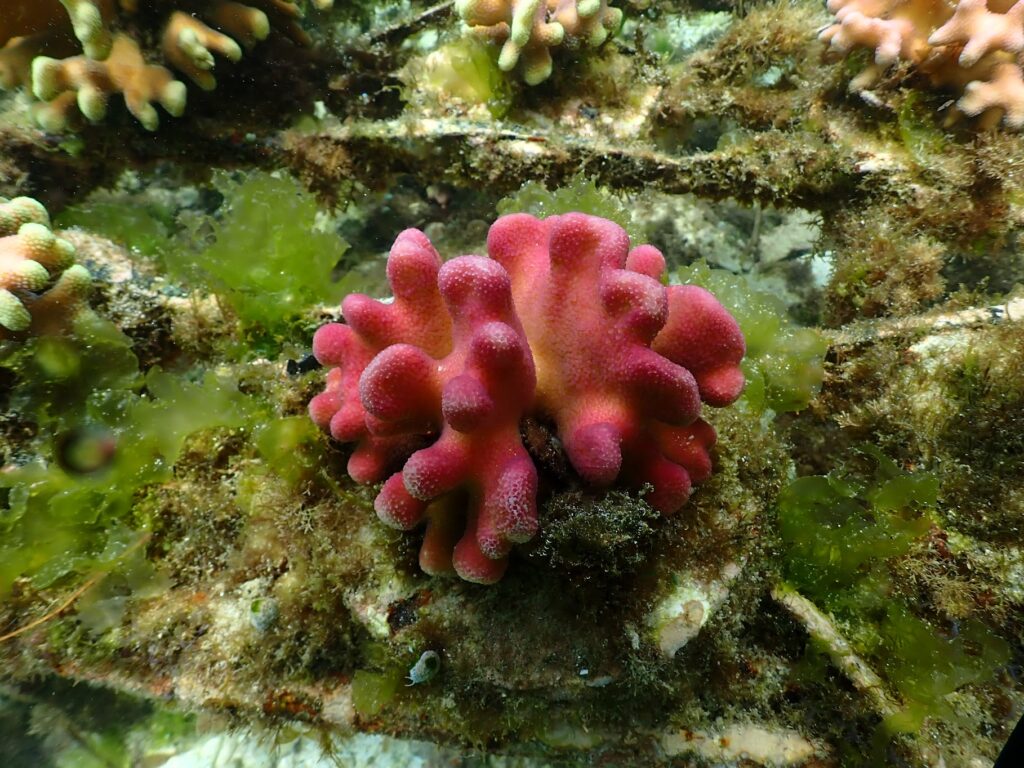
The process of coral micro-fragmentation on Net-Zero AragoReef typically involves the following steps:
Collection
Healthy coral colonies are selected for micro-fragmentation. These colonies are often chosen based on factors like their growth rates, resistance to stress, and potential to provide genetic diversity.
Fragmentation
The selected coral colonies are carefully fragmented into smaller pieces, often just a few centimeters in size. These micro-fragments are then secured onto substrates such as specially designed structures or plugs.
Nursery Growth
The micro-fragments are placed in coral nurseries, where conditions such as water temperature, light, and nutrient levels are carefully controlled to promote rapid growth.
Outplanting
Once the micro-fragments have reached a certain size and are considered robust enough, they are transplanted back onto degraded reefs to aid in reef restoration efforts.
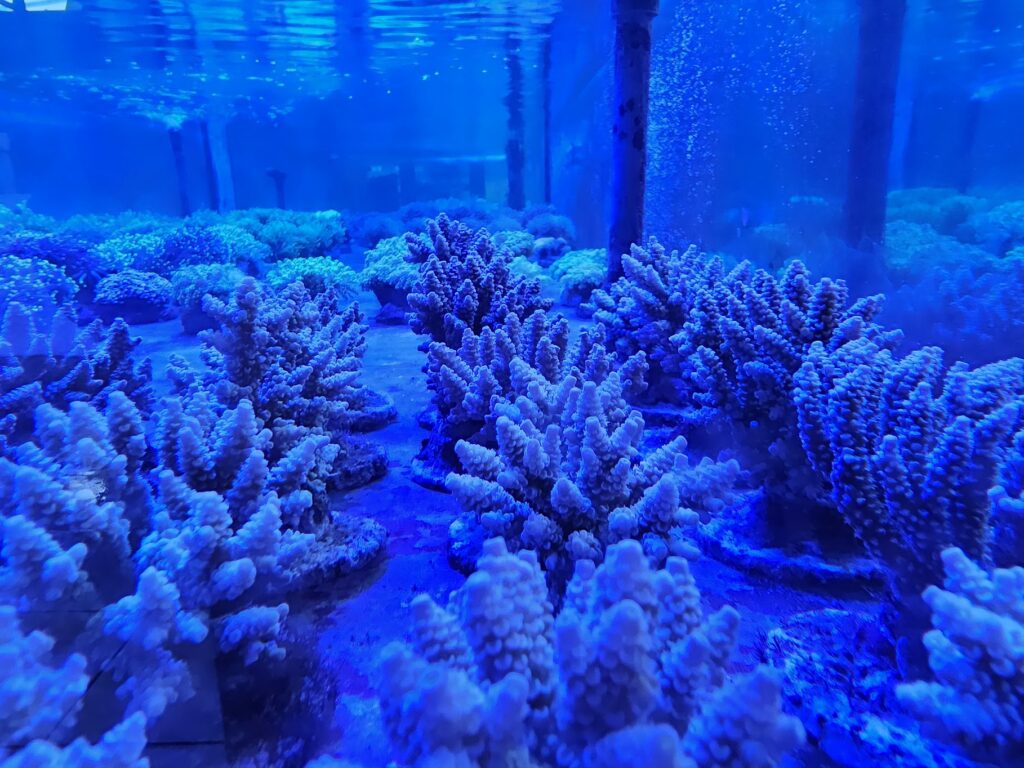
Coral micro-fragmentation offers several potential benefits:
- Rapid Growth: Micro-fragmentation can lead to faster coral growth compared to traditional coral propagation methods.
- Genetic Diversity: By using multiple source colonies, micro-fragmentation can help introduce genetic diversity to restore resilience in coral populations.
- Reduced Stress: Smaller fragments may be more resilient to environmental stressors and have a higher chance of survival during transplantation.
- Efficiency: This method allows a single coral colony to generate a large number of micro-fragments, maximizing restoration efforts.
While coral micro-fragmentation shows promise, it's important to note that its success depends on various factors, including the health of the source colonies, the suitability of the transplantation site, and ongoing monitoring and maintenance. Additionally, is necessary to develop coral sexual reproduction projects to enhance genetic diversity among the organisms in natural environments.
Net-Zero AragoReef structures for spiny crab aquaculture
Mithrax spinosissimus, is a herbivorous spiny crab that can help to prevent algae growth over micro-fragmented corals. However, aquaculturing Mithrax spinosissimus can present challenges, as they have complex life cycles and specific requirements.
Specifically, there are several challenges to replicating the habitat to avoid cannibalism in the early stages of development. RAC is creating suitable AragoReef structures that enhance survival rates and can help to maximize growth. Providing hiding spots, rocks, and structures where they can molt and seek refuge.
